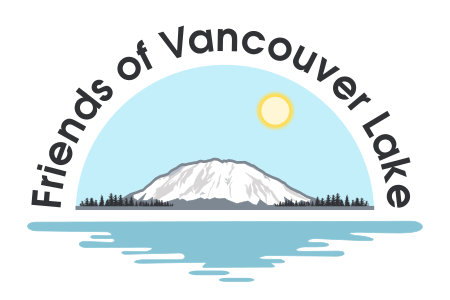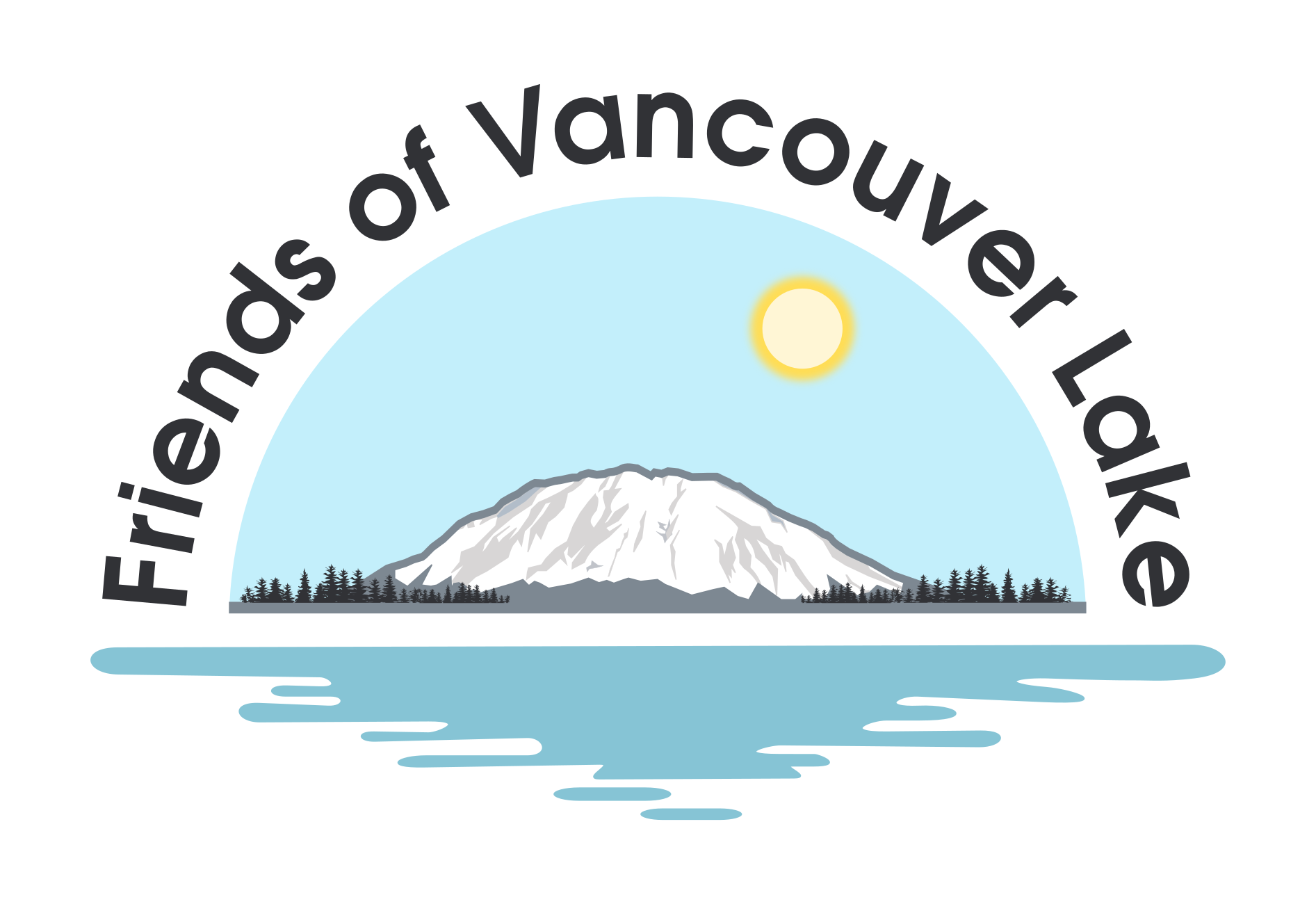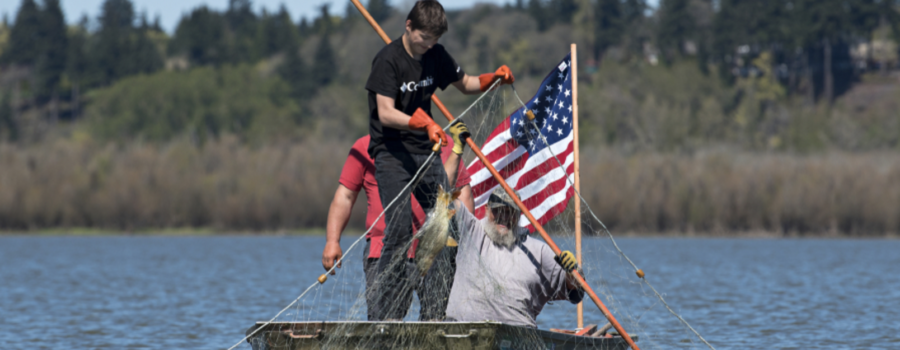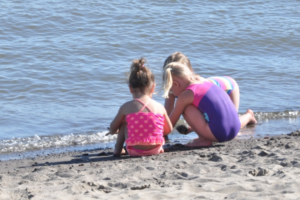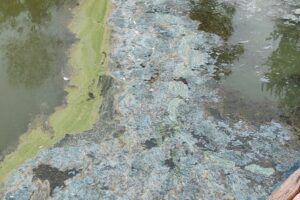By Jack Heffernan, Columbian county government and small cities reporter
Something is muddying the Vancouver Lake waters, causing toxic algae blooms and regular closures. A lake advocacy group is hoping to fix that.
The Friends hope removal of a large portion of the carp population at the lake will cut down on regular toxic algae blooms, caused in large part by the sediment stir-up. A similar carp-netting effort took place last year at Moses Lake.
“We want to remove that source of agitation to the largest extent possible,” said Kathy Gillespie, co-chair of the Friends group. “The carp absolutely do not belong here.”
The advocacy group is paying the fishers $1,500 for each day they spend on the lake.
“That’s a substantial amount for our group,” Gillespie said. “Every fish that hits the boat is one less to disturb the sediment.”
Anton Reutov of Spokane has been netting at the lake over the past week with his son Conan Reutov and Arty Kuzmin. He has also netted at Moses Lake.
“We want to remove that source of agitation to the largest extent possible,” said Kathy Gillespie, co-chair of the Friends group. “The carp absolutely do not belong here.”
The advocacy group is paying the fishers $1,500 for each day they spend on the lake.
“That’s a substantial amount for our group,” Gillespie said. “Every fish that hits the boat is one less to disturb the sediment.”
Anton Reutov of Spokane has been netting at the lake over the past week with his son Conan Reutov and Arty Kuzmin. He has also netted at Moses Lake.
Reutov said carp have generally been smaller at Vancouver Lake — under 10 pounds — than up north. He has fished for carp for roughly six years, typically keeping them for consumption or giving them away.
“Basically, it was a hobby, and now it’s become a full-time job,” Reutov said.
Gillespie said that roughly 2,000 fish had been removed by the end of the day Wednesday. The largest daily total so far is 347, and Wednesday showed signs of promise with the catch of female and larger fish — closer to 25 pounds.
The Friends plan to have the fishers return intermittently over the next three to five years.
Last year, the Friends paid roughly $150,000 for successful treatment of Eurasian milfoil. The weeds had been a nuisance to rowers, become tangled in boat motors and inhibited swimming.
The advocacy group is also keeping an eye on curly-leaf pondweed, another invasive species that has been spotted around the lake.
